Kolkata IX: The Maiden Community Internet Exchange in India

In 2015, the Internet Society Kolkata Chapter decided to create an Internet Exchange Point (IXP). It had just completed the installation of L-Root Instance, a critical Internet infrastructure to improve security and resiliency of the Web.
It chose the IXP model specifically because it was working towards hosting an authoritative Domain Name System (DNS) root zone for a top-level domain (TLD), another essential infrastructure of the Internet. But they didn’t know where to begin.
So, the team evaluated cost models and the market and held an outreach event with the Internet Service Provider (ISP) community. The engagement raised interest, but no one joined the IXP. The expectation was that Content Distribution Networks (CDN) would kick off the IXP, before others could join. Tushar Kanti Bhakta, a senior member of the Chapter’s board, suggested community building could help.
With no equipment, no members and no CDN, the team started community building efforts. It held workshops where it invited potential members to discuss Domain Name System Security Extensions, DNS, and the Border Gateway Protocol, the routing protocol for the Internet. Each workshop gave the team the opportunity to pitch the idea of a community IXP in Kolkata.
After two years of engagement, Continue reading
The Week in Internet News: Seven Countries Repeat Calls for Encryption Backdoors
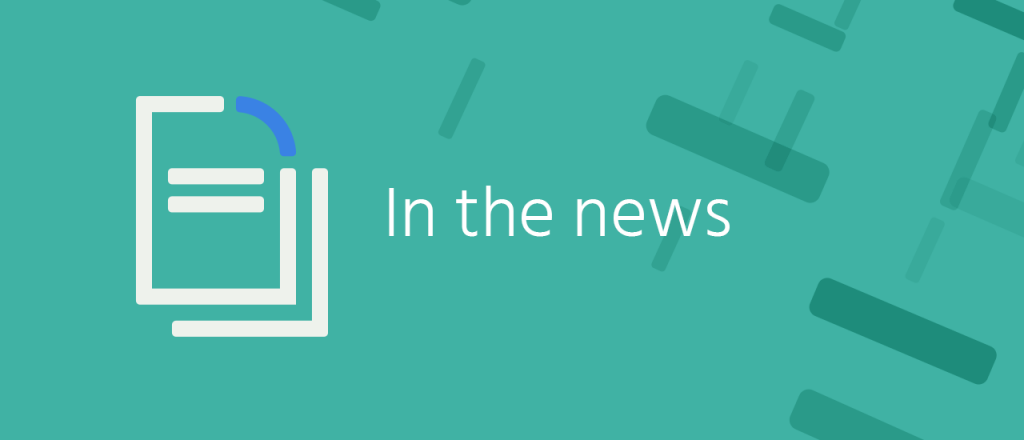
Here we go again: Seven countries, including the U.S., U.K., Japan, and India, are again pushing tech companies to provide encryption backdoors for law enforcement, The Verge reports. The new international statement says encryption poses “significant challenges to public safety.” The U.S. and allies have long pushed for backdoors, even as security advocates have warned that criminals will find ways to exploit holes in encryption.
ISPs protest: ISPs in Dhaka, Bangladesh, are threatening to shut down service for three hours a day over a dispute on overhead wire replacement, Dhaka Tribune reports. The city is planning to move the wires underground, but ISPs are concerned about potential problems during the switch. Threatening a blackout to protest potential blackouts seems counterproductive.
Decency police: The government of Pakistan has banned short video app TikTok over “immoral and indecent” content, Al Jazeera says. It’s unclear what TikTok content the Pakistan Telecommunication Authority found offensive. A kickboxer in the country, hoping to market his training services on TikTok, challenged the ban, however, Reuters reports. “If TikTok can be banned even though it has millions of videos because of a few offensive ones, why can’t the whole internet be shut Continue reading
In Africa, Strengthening Digital Infrastructure for a Safe Return to Schools

When COVID-19 struck Africa, governments imposed temporary or full shutdowns of education systems to contain its spread. At least 53 out of the 54 African countries took measures that canceled or partially closed schools. Kenya, for example, canceled the 2020 academic year in March, before changing its directives six months later to allow schools to reopen.
No Internet, No Schools
Across the Democratic Republic of Congo, Liberia, Nigeria, and South Africa, where governments imposed partial closure, the few students with access to the Internet, mobile devices, and computers continue learning. But for the majority, there is no schooling. Most can’t afford the cost of Internet data, and very few have access to smartphones and computers. They must improvise to learn, thus widening disparities between learners with Internet access and those without. How can Africa close this gap and offer equal learning opportunities to everyone?
As we gear up towards resuming formal education, there is general panic among parents about the implications resulting from the major learning disruptions. Could COVID-19 lead to a lost generation of students?
Solutions for a Safe Return
Fortunately, African decision-makers are shifting their positions on schools as we learn to live with COVID-19. Governments across the Continue reading
Member News: Haitian Chapter Calls for More Community Networks
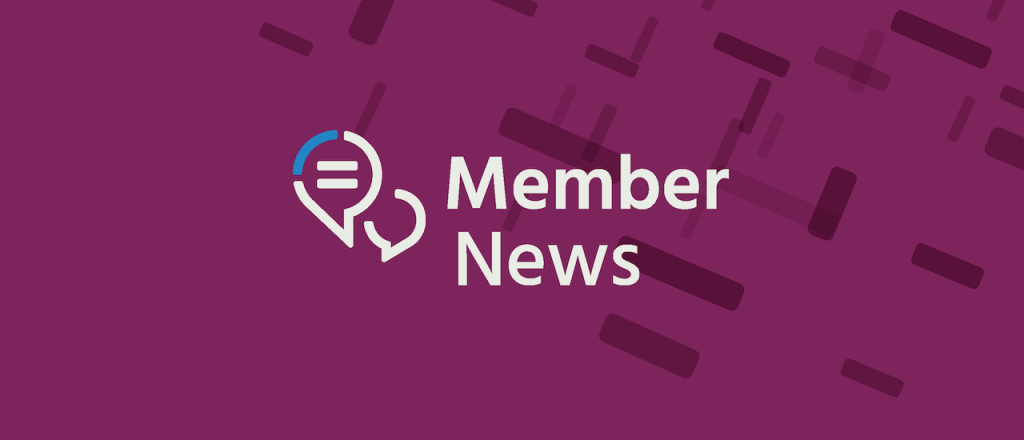
From the community: The Haiti Chapter of the Internet Society recently posted a video advocating for more community networks in the country. Internet access is a necessity during the COVID-19 health emergency, the Chapter said. Still, there is a challenge of providing access in rural areas of the country. The Chapter wants a plan that allows communities to build their own networks “where it is not yet economically viable for Internet service providers” to offer broadband service.
Going to school: The Kyrgyzstan Chapter has provided an update about its very active ilimBox project, which provides an Internet-in-a-box service to schools in the country. In late August, the ilimBox team, with the financial support of the European Union, installed 22 ilimBox devices in the border villages of Batken region.
Don’t split the Internet: The Greater Washington, D.C., Chapter has voiced opposition to U.S. President Donald Trump’s plans to ban Chinese apps TikTok and WeChat from the U.S. The Chapter is “against breaking the Internet,” it wrote. The proposed ban “undermines the foundations of the Internet.” The Chapter’s statement echoes the position of the Internet Society as a whole.
Safety first: The St. Vincent and the Grenadines Continue reading
The Week in Internet News: U.S. Lawmakers Want to Break Up Big Tech Firms
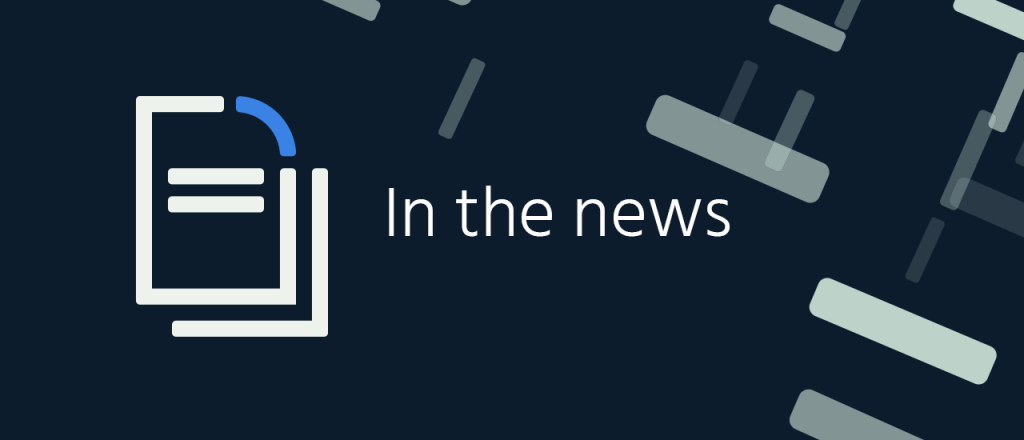
Break ‘em up: A report released by the Democrats on the U.S. House of Representatives Judiciary Committee has accused Amazon, Apple, Facebook, and Google of abusing their monopoly power and has called the four companies to effectively be broken up, the New York Times reports. The report calls the four companies “the kinds of monopolies we last saw in the era of oil barons and railroad tycoons.”
India wants in: Meanwhile, Google is reportedly facing an antitrust investigation in India for allegedly abusing its Android operating system’s position in the smart television market, The Economic Times of India says. This is the fourth major antitrust case Google has faced in the huge India market.
Hackers for hire: A mercenary hacking group is operating throughout the Middle East, with Saudi diplomats, Sikh separatists, and Indian business executives among those being targeted, Al Jazeera reports. The diversity of the group Bahamut’s activities makes it appear that it’s not working for a single group or nation, researchers say.
Ready for takeoff: SpaceX’s space-based Internet service is nearly ready for use after the company’s latest launches of Starlink satellites, CEO Elon Musk says. SpaceX has delivered 60 additional satellites into low-Earth orbit this Continue reading
Community Networks: Improving Connectivity for All in Haiti

The COVID-19 pandemic reminds us of the historic transition brought about by the Internet. Its place is real in our lives today and tomorrow. Celebrate, pray, play, study, work, express yourself … these verbs have been conjugated thousands of times everywhere thanks to the Internet. In Haiti, many suffer from the glaring inequality between Internet access in rural and urban areas. It is clear that tackling these problems comes down to building a safe path towards decentralization of Internet infrastructure here.
The mission of the Internet Society Haiti Chapter (ISOC Haiti) is to promote, on Haitian territory and for the benefit of all, the conditions and tools conducive to the development of an information and knowledge society – respectful of Haitian culture and values. Since 1804, our nation has raised its voice for freedom and equality so that every person may live free and in dignity, while banishing Black slavery on our land. Our motto, ‘’unity is strength,’’ reminds us that together we can achieve unimaginable things to change this nation. ISOC Haiti is aware of the challenges and believes it is time for a sustainable plan of action – and not for speech.
Poor quality and expensive Internet access Continue reading
The Internet of Food

This abridged article by Francisca Hector was originally published in Tasty Bytes.
Arguably food is the most important item on the planet. The current food system; however, has many inefficiencies and food security continues to be a global challenge.
In addition to this, conscious consumption has reached new heights as consumers demand that their food is not only safe, nutritious, and affordable, but they also want to ensure that their food is ethically sourced and the harvesting and production processes reduce waste.
For many, there is the belief that the food system needs to be fundamentally disrupted. While there have been some attempts to use technology to make better decisions around food, these technologies are not widely available. Without widespread availability and adoption, the impact of any technology is hard to ascertain.
This and other concerns are what spurred the creation of The Internet Society Special Interest Group for the Internet of Food (SIG-IOF), which is a discussion room for next-gen Internet backbone standards for digital aspects of food. In short, that means that when food goes data, this group would like to facilitate the Internet standards for how that data is handled.
With 110 chapters located all over Continue reading
The Week in Internet News: Judge Blocks U.S. TikTok Ban

No deal: A U.S. judge has temporarily blocked President Donald Trump’s order to ban Chinese app TikTok from the Apple and Android app stores, CNBC reports. Trump has argued that the app is a security risk. Oracle and Walmart are in talks to buy a piece of TikTok’s U.S. operations as a way to appease Trump, though it appears that there’s disagreement with Chinese owner ByteDance over the outlines of a deal.
Breaking up is hard to do: The Hill has commentary about Trump’s attempt to ban TikTok and WeChat, another Chinese app, saying these are “only the most recent signs that the once open, global internet is slowly being replaced by 200, nationally-controlled, separate internets.” Trump’s efforts follow a long-term Chinese government drive to create a walled off Internet inside its own borders.
It’s nice to share: The European Union is preparing new regulations that would require large tech companies to share their customer data files with smaller competitors, Euronews says. An early draft of the Digital Services Act says companies like Amazon and Google “shall not use data collected on the platform … for [their] own commercial activities … unless they [make it] accessible to business users active Continue reading
The Internet Is Built on ‘Intermediaries’ – They Should Be Protected

This opinion piece was originally published in The Hill.
Now is not the time to be careless with laws that could harm the Internet we rely on more than ever in our day to day lives.
Policymakers owe it to the billions of users around world that rely on the Internet for work, education, and daily activities to do their homework before attempting to change laws so pivotal to the Internet’s success.
And yet, the uptick of lawmakers making hasty changes to the law known as “Section 230” is proof of uninformed decision making that has the future of a law that helped shape the Internet looking increasingly grim.
In the last two years, there have been at least 18 attempts – via bills, executive orders and other initiatives – to try blow up the rule that has kept Internet intermediaries from being liable from the actions of their users since 1996. Within each of those efforts, the definition of what will be impacted has varied widely from “platforms” to “interactive computer services” and “Internet intermediaries.”
Depending on these definitions, and the larger policies they are attached to, the associated impacts of these proposals could be annoying, or they could Continue reading
Launching the First-Ever Virtual Indigenous Connectivity Summit
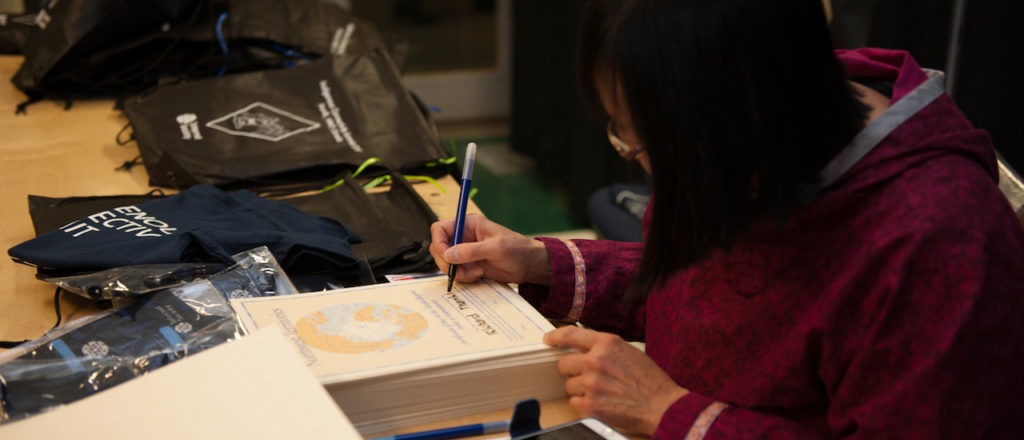
COVID-19 has moved many of our lives online, and our conversations around how to further broadband access are no exception. This year, the Indigenous Connectivity Summit is happening virtually for the first time.
After meeting in Santa Fe, Inuvik, and Waimanalo and Hilo, this year we had planned to meet in Winnipeg – the city with the highest Indigenous population in Canada. We will sorely miss seeing our ICS community in person, but we are excited to meet online and demonstrate how important it is for Indigenous communities to connect to the Internet.
An important aspect of the ICS is the space created for community members to engage in conversations sharing similar challenges, connecting with one another, and innovating solutions to the lack of broadband access in their communities. We are excited to continue having these impactful conversations virtually and to recreate a more discussion-based environment than in a typical webinar format. We are also looking forward to having new faces join us this year. Without the barrier of travel, we can now engage with more participants from different communities.
The conversations we hold at the ICS hold significant weight in the policy world. Take our conversations around the Tribal Continue reading
NTS RFC Published: New Standard to Ensure Secure Time on the Internet

The Internet Society is pleased to see the publication of RFC 8915: Network Time Security for the Network Time Protocol by the Internet Engineering Task Force (IETF). This standard represents a new security mechanism for one of the oldest protocols on the Internet, the Network Time Protocol (NTP).
Secure and Accurate Time
NTP enables the synchronization of time on computers connected by a network. Time is very important for many vital everyday functions, such as financial transactions and the correct operation of electrical power systems and transportation systems. Secure and accurate time is also crucial for many Internet security technologies including basic website security. As everything becomes more distributed and more online, synchronized time in computers becomes even more important. But despite all this, security for NTP has lagged behind in development and deployment. Network Time Security (NTS) was developed to fill this gap.
The publication of the NTS protocol on 1 October, 2020 represents the culmination of many years of work by the IETF NTP Working Group. NTS adds cryptographic security for the client-server mode of NTP. So, what does this mean? It means that NTP can now confirm the identity of the network clocks that are exchanging time Continue reading
Can You Spare a Minute? Network Time Security Featured on The Hedge Podcast

Are you interested in finding out more about Network Time Protocol (NTP), Network Time Security (NTS), and discovering why synchronized time is an essential foundation for online security?
Today is International Podcast Day, so why not spend it listening to the The Hedge Podcast #49: Karen O’Donoghue and Network Time Security.
Network Time Protocol (NTP) is one of the oldest Internet protocols in use. It enables the synchronization of clocks on computer networks to within a few milliseconds of standard universal coordinated time (UTC). Accurate time is also a critical component for online security, and many security mechanisms, such as Transport Layer Security (TLS) and digital signature creation and verification, depend on accurate timekeeping.
Updated Mechanism
NTP’s security mechanisms, however, were designed back in an era when the risk of attack was unlikely. Due to the continued expansion of the Internet, these mechanisms have become outdated. Work has been underway for many years in the Internet Engineering Task Force (IETF) Network Time Protocol Working Group to develop replacement technology, which will help to secure the Internet’s time synchronization infrastructure well into the future. The result of this work is in the Continue reading
Nigeria’s IXPs – Enabling Better Connectivity, Faster Internet Delivery, and Improving Internet Service

Nigeria grew its local Internet traffic from 30% to 70% in the past eight years, connecting more people, increasing speed, and reducing costs. They did this through Internet Exchange Points (IXPs), according to the Internet Society report Anchoring the African Internet Ecosystem: Lessons from Kenya and Nigeria’s Internet Exchange Points Growth.
Between 2012 and 2020, the number of peering networks has grown from 30 to 71 and new exchange platforms have been set up in Abuja, Kano, and Port Harcourt. More networks and more IXPs increased the amount of Internet traffic exchanged in Nigeria from 300 Mbps to peak traffic of 125 Gbps in Lagos.
Muhammed Rudman started the Internet Exchange Point of Nigeria (IXPN) in 2006, when the industry was developing. Most networks did not peer in Nigeria. One major submarine cable, Sat3, offered services across the country with others getting service via VSATs. This meant ninety-nine percent of websites were hosted abroad.
“The terrain was tough,” says Rudman, an IT veteran and founding Chief Executive Officer of IXPN, which is based in Lagos, Nigeria’s largest city. Approaching Internet service providers, he was often asked how many networks were already peering. Without any networks exchanging traffic, he’d often hear, “When you Continue reading
Losing the Right to Encryption Means Losing Business

Every time a government passes a law that affects the Internet, tech companies must ask themselves a critical question: can they still properly provide their services while protecting user privacy under the new rules?
For companies operating in countries pursuing anti-privacy legislation, the answer is increasingly scary from both a user and corporate perspective.
That’s because anti-privacy laws often try to accomplish their goals by breaking or bypassing encryption – arguably the strongest and most widely available form of privacy and security in our digital age. Weakening encryption makes people and nations around the world more vulnerable to harm online.
But governments around the world that pass anti-privacy legislation are incurring unplanned costs that go beyond the chilling effects of lessened privacy for their citizenry.
Laws that attack encryption and privacy stifle their local tech industry and tarnish their reputation internationally, both of which are detrimental to their own economy.
To uphold the privacy and security of their users, some companies actually end up physically exiting a region and relocating servers – rather than weakening their service. This is something that the VPN company I work for, Private Internet Access, has done multiple times with the most recent example being Continue reading
The Week in Internet News: Lawmakers Hampered by Poor Internet Service
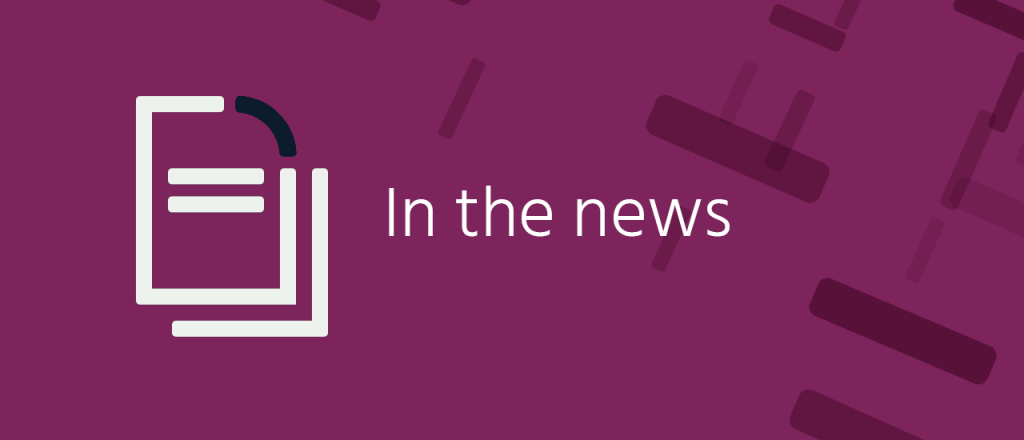
Too slow: Some state lawmakers in New Mexico are having trouble attending virtual committee meetings because of poor Internet service, Government Technology reports. State Rep. Micaela Lara Cadena has to share a slow connection with her children, who are attending virtual school. “The only Internet I can get comes through a phone line,” she said. “There’s no broadband, no fiber optics.”
Kicked out: Facebook and Twitter have removed several hundred fake accounts they said are linked to Russian military intelligence and other Kremlin-backed actors previously tied to interference in U.S. politics, NPR reports. The accounts were not tied to interference in the 2020 U.S. election, Facebook said, but they were linked to past attempts.
Investigating speech: In other Facebook news, the social media company is facing an investigation by a New Delhi government committee over its alleged role in religious riots earlier this year, CNN says. This is the second time in recent weeks that Facebook has been investigated for being used to spread controversial speech. Earlier, Facebook allowed a politician from India’s ruling party to remain on its platform even though his anti-Muslim posts appeared to violate rules against hate speech.
Targeting the dark web: One Continue reading
What Does Normal Look Like Now? COVID’s Impact on the Internet

Six months ago, when the World Health Organization declared COVID-19 a pandemic, it accelerated the shift out of offices and schools and onto the Internet. Back then, we asked if the Internet was resilient enough to withstand Coronavirus. After several months of observations, we confirmed that it is, thanks to the strength, resilience and success of the open architecture that underpins it. Since then, concerns about the Internet’s ability to handle the increase in lockdown-driven traffic seem to have abated, resulting in fewer articles and blog posts on the topic.
Getting Back to Normal
As we head into the final months of 2020, some businesses have reopened in a limited capacity, allowing employees to return to their brick-and-mortar workplaces. Many students are also returning to school, whether in person or online. Yet, the lack of affordable and available Internet access remains a significant issue. Earlier this year, we heard stories about students sitting outside schools and libraries in search of reliable WiFi in order to attend classes. As the new school year starts in North America, we heard about students using WiFi signals from a local fast food chain restaurant to complete their homework. And with students now needing to Continue reading
The Week in Internet News: Trading Trash for WiFi

Turning plastic into access: Students in a Jakarta, Indonesia, neighborhood are collecting discarded plastic and trading it for access at a WiFi station that sells the plastic waste, the World Economic Forum website says. The owner of the WiFi station uses the profits from selling the plastic to purchase access for small groups of students who need Internet access during continuing COVID-19 lockdowns.
No access here: About 54 percent of households in rural Bangladesh lack Internet access, according to a new survey featured at The Daily Star. Nearly six in 10 don’t have access to a smart phone. The survey also found that about eight in 10 rural households have very limited digital skills.
Trump vs. TikTok: U.S. President Donald Trump’s administration has moved to ban Chinese apps TikTok and WeChat as of 20 September, Reuters reported. The U.S. Department of Commerce was planning to issue an order on Friday that would prohibit app stores available in the U.S. from offering the two apps. TikTok owner ByteDance was still exploring a sale of the video-sharing app to U.S. companies.
Rockets on boats: SpaceX is planning to test its proposed Starlink satellite Internet network by using a Continue reading
The Digital Services Act and Why the Architecture of the Internet Must Be Preserved

Earlier this year, as part of the European Digital Strategy, the European Commission announced a Digital Services Act package to develop new and revised rules to harmonize and deepen the Single Market for digital services. As a part of that initiative, it also initiated a public consultation to scope the specific issues that may require regulatory intervention.
The Internet Society submitted recommendations in response to the critical issues raised in this consultation. One of the key considerations that we hope comes across in this submission is that in order “to design better regulation for the Internet, it is important to understand two things: the first one is that today’s Internet, despite how much it has evolved, still continues to depend on its original architecture; and, the second relates to how preserving this design is important for drafting regulation that is fit for purpose.”
As noted by the Commission, the scale of digital services is substantially different from 20 years ago, when the E-Commerce Directive was introduced. New actors and new services have emerged, creating a much more complex ecosystem. This new ecosystem presents new challenges, particularly with regard to illegal and harmful activities and content online. Current discussions and regulatory initiatives Continue reading
Making Connections to Make a Difference at the 2020 Chapter Workshops
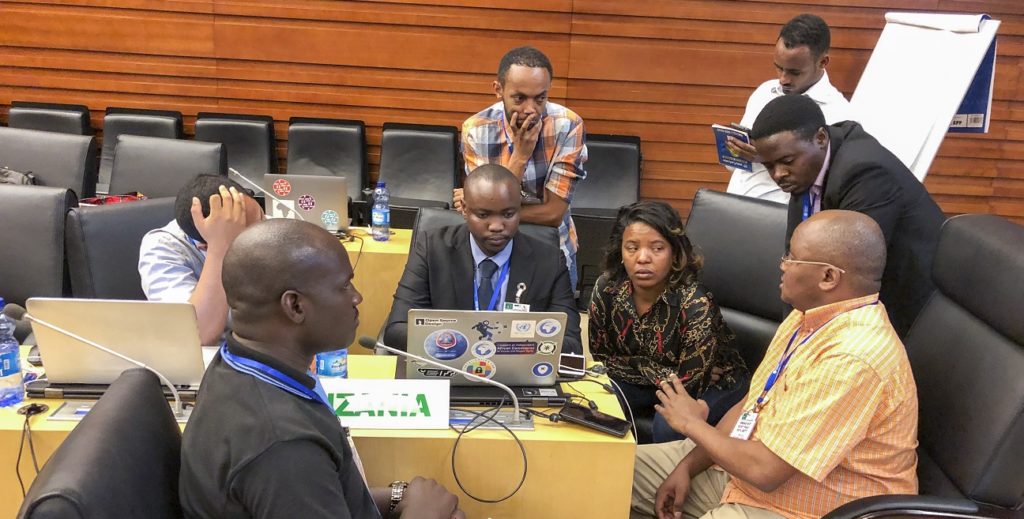
Each year during Chapter Workshops, representatives from across the Internet Society come together to advance their shared vision of an open and trusted Internet for everyone. They gather elbow-to-elbow on five different continents, sharing experiences and exchanging local, regional, and global perspectives. These annual workshops are a meeting ground for Internet Society Chapters, project leads, global colleagues, and our partners at the Internet Society Foundation – a chance to collaborate, define strategies, and develop plans.
Key to the Chapter Workshops is working closely to foster synergies, exchange lessons learned, spark engagement, and strengthen relationships across the global Internet Society community.
This year is a little different.
The 2020 Chapter Workshops come at a time when the world is grappling with the COVID-19 pandemic and relying on the Internet to enable continuity. We now understand too well the importance of having a better, reliable, and affordable Internet for everyone.
With this in mind, the Chapter Workshops have been tailored to this context and will take place virtually – where human connection will still be on the agenda. Each region has identified priority topics and developed their sessions accordingly.
Africa (22-25 September)
Europe (5-7 October)
Asia-Pacific (15-16 October)
North America & The Caribbean (19-23 October)
Middle East Continue reading
What Will the Internet Look Like in 2030? New Grants Program for Researchers Studying the Future of the Internet

From the environment to the economy, the Internet is reshaping and disrupting several sectors of our society. What might future patterns of disruption look like? How will these changes affect all of us, particularly those on the margins of society? What new solutions can we generate today, to address the challenges of tomorrow?
At the Internet Society Foundation, we believe the answers to these questions and many others lies in research. That’s why we’re thrilled to announce a new grants program supporting researchers worldwide who are studying the future and sustainability of the Internet. Grants of up to US$200,000 are available for research lasting up to two years and focused in one of two categories:
- Greening the Internet: How the Internet affects and is affected by the environment
- The Internet Economy: How digital technologies are transforming our economic landscape
Established in 2019 to support the positive difference the Internet can make to people everywhere, the Internet Society Foundation awards grants to Internet Society Chapters/Special Interest Groups (SIGs) as well as nonprofit organizations and individuals dedicated to providing meaningful access to an open, globally-connected, secure, and trustworthy Internet for everyone.